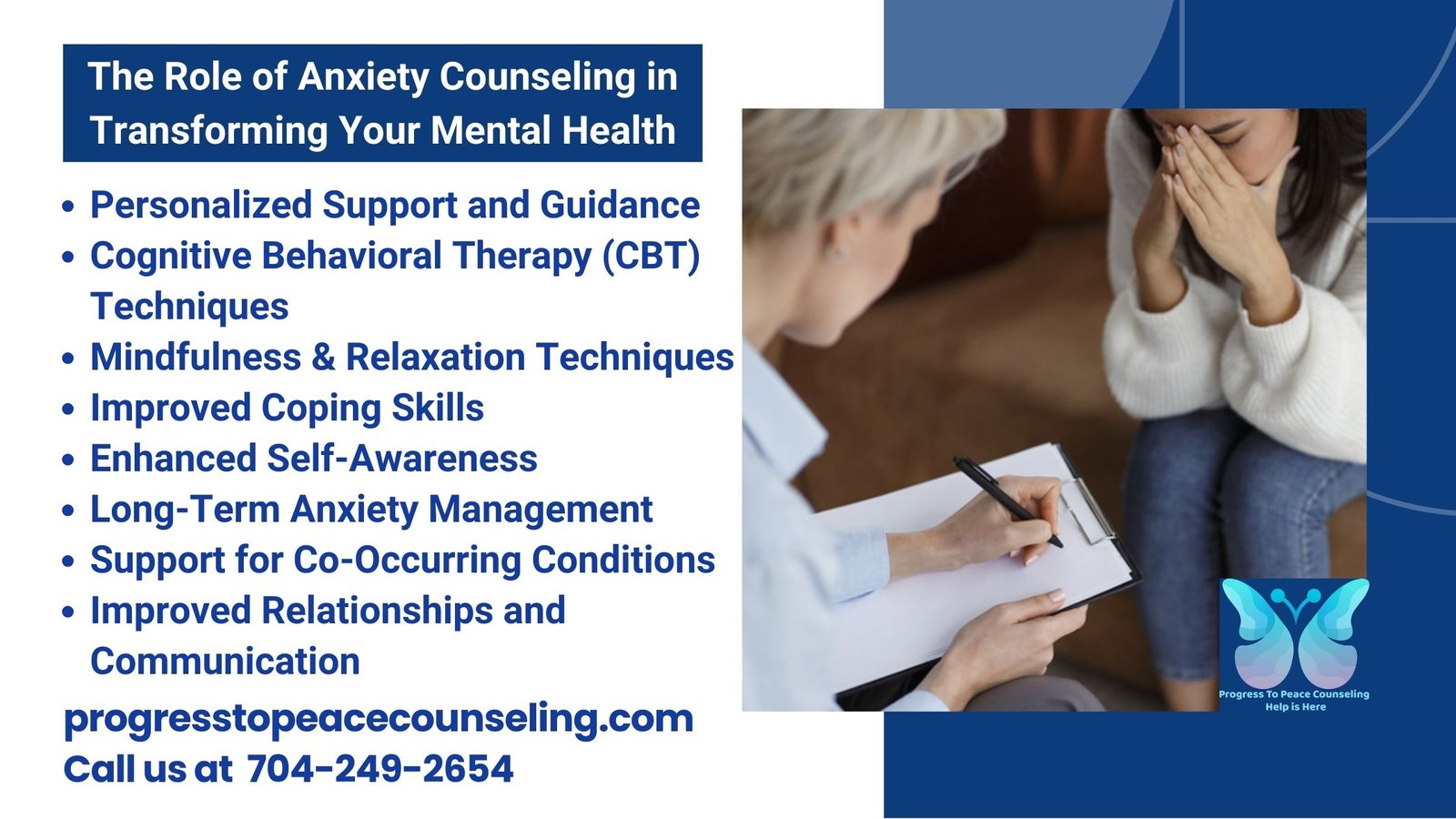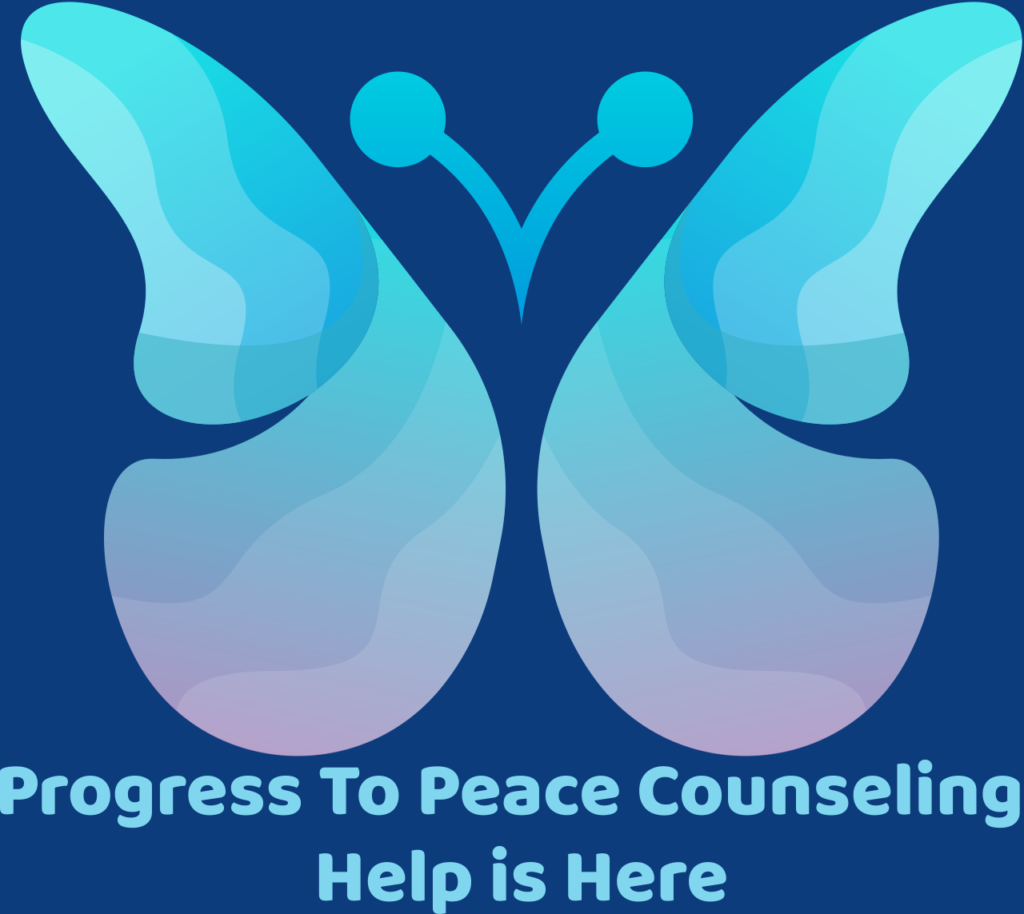Millions of people worldwide suffer from anxiety, a prevalent mental health issue. There are several ways that it might appear, such as panic attacks, social anxiety, and certain phobias, as well as generalized anxiety disorder (GAD).
Even with its widespread occurrence, anxiety is a problem for a lot of people, who frequently feel paralyzed by the constant fear and worry that can take over their everyday life. Thankfully, anxiety counseling in Charlotte NC is something which is available to individuals looking for long-term mental health reform and alleviation.
Let’s discuss the advantages of anxiety counseling below and how it may assist you in taking back control of your life.
The Role of Anxiety Counseling in Transforming Your Mental Health
Anxiety counseling is a form of therapy that focuses on helping individuals understand and manage their anxiety. It involves working with a trained mental health professional who uses various therapeutic techniques to address the root causes of anxiety and develop coping strategies. Counseling is not a one-size-fits-all approach; it is tailored to each individual’s unique needs and circumstances, ensuring the best possible outcomes.
1. Personalized Support and Guidance
One of the most significant benefits of anxiety counseling is the personalized support and guidance it provides. A licensed therapist can help you identify the specific triggers and patterns contributing to your anxiety. By understanding the underlying causes, you can develop more effective strategies to manage your symptoms. This personalized approach ensures that your treatment is aligned with your unique experiences and challenges.
2. Cognitive Behavioral Therapy (CBT) Techniques
Cognitive Behavioral Therapy (CBT) is one of the most commonly used techniques in anxiety counseling. CBT focuses on identifying and challenging negative thought patterns and behaviors contributing to anxiety. Through CBT, you can learn to reframe your thoughts, reducing the intensity of your anxiety and improving your overall mental health.
For example, if you have a fear of public speaking, CBT can help you identify the irrational beliefs fueling your anxiety, such as the fear of being judged or ridiculed. With your therapist’s guidance, you can develop healthier, more rational thought patterns that reduce your anxiety in these situations.
3. Mindfulness and Relaxation Techniques
Another essential component of anxiety counseling is learning mindfulness and relaxation techniques. These practices can help you stay grounded in the present moment, reducing the impact of anxiety on your daily life. Mindfulness involves paying attention to your thoughts, feelings, and bodily sensations without judgment, helping you become more aware of your anxiety triggers and how they affect you.
Relaxation techniques, such as deep breathing exercises, progressive muscle relaxation, and guided imagery, can help calm your nervous system and reduce the physical symptoms of anxiety. By incorporating these techniques into your daily routine, you can develop a greater sense of control over your anxiety.
4. Improved Coping Skills
Anxiety counseling equips you with a toolbox of coping skills to manage anxiety in various situations. These skills can include problem-solving strategies, assertiveness training, and stress management techniques. With the help of your therapist, you can practice these skills in a safe and supportive environment, gradually building confidence in your ability to handle anxiety-provoking situations.
For instance, if you experience social anxiety, your therapist might work with you to develop strategies for navigating social interactions more comfortably. This could involve role-playing exercises, exposure therapy, or learning how to set boundaries in social situations.
5. Enhanced Self-Awareness
Counseling is not just about managing symptoms; it’s also about increasing self-awareness. Through therapy, you can gain a deeper understanding of your thoughts, emotions, and behaviors, allowing you to identify patterns that contribute to your anxiety. This self-awareness is crucial for long-term mental health because it empowers you to make more informed choices about your behavior and responses to stress.
For example, you might discover that certain situations or relationships consistently trigger your anxiety. With this awareness, you can make changes to reduce your exposure to these triggers or develop healthier ways to cope with them.
6. Long-Term Anxiety Management
While medication can be an effective short-term solution for managing anxiety symptoms, it doesn’t address the underlying causes of anxiety. Anxiety counseling, on the other hand, provides long-term tools and strategies for managing anxiety. By working through the root causes of your anxiety and developing healthy coping mechanisms, you can reduce your reliance on medication and experience lasting improvements in your mental health.
In addition, counseling can help you develop a proactive approach to managing anxiety. This might involve creating a self-care plan that includes regular exercise, healthy eating, and sufficient sleep—all of which are essential for maintaining good mental health.

7. Support for Co-Occurring Conditions
It’s common for individuals with anxiety to also experience other mental health conditions, such as depression or substance abuse. Anxiety counseling can provide comprehensive support for these co-occurring conditions, addressing all aspects of your mental health. Your therapist can work with you to develop a treatment plan that considers your unique needs and challenges, ensuring that you receive holistic care.
For example, if you’re struggling with both anxiety and depression, your therapist might use a combination of CBT and other therapeutic approaches to address both conditions simultaneously. This integrated approach can lead to better outcomes and a more comprehensive recovery.
8. Improved Relationships and Communication
Anxiety can significantly impact your relationships, leading to misunderstandings, conflicts, and emotional distance. Through counseling, you can learn healthier ways to communicate and interact with others, improving your relationships and reducing the stress that contributes to your anxiety.
For instance, if you experience anxiety in your relationships, counseling can help you develop more effective communication skills, such as active listening, assertiveness, and empathy. These skills can enhance your ability to connect with others and reduce the anxiety that often arises in social situations.
9. Increased Resilience and Confidence
As you progress through anxiety counseling, you’ll likely notice an increase in your resilience and confidence. By facing your fears and developing new coping strategies, you’ll build a sense of mastery over your anxiety. This newfound confidence can spill over into other areas of your life, helping you tackle challenges with greater ease and less fear.
For example, if you’ve been avoiding certain situations because of your anxiety, counseling can help you gradually confront these fears and build the confidence to face them head-on. Over time, this can lead to significant improvements in your quality of life.
Conclusion
Anxiety counseling with Progress to Peace Counseling offers a transformative path to better mental health. By providing personalized support, teaching valuable coping skills, and addressing the root causes of anxiety, counseling can help you regain control of your life and reduce the impact of anxiety on your daily experiences. Whether you’re dealing with chronic anxiety or occasional bouts of stress, counseling can provide the tools and strategies you need to manage your symptoms and improve your overall well-being.














